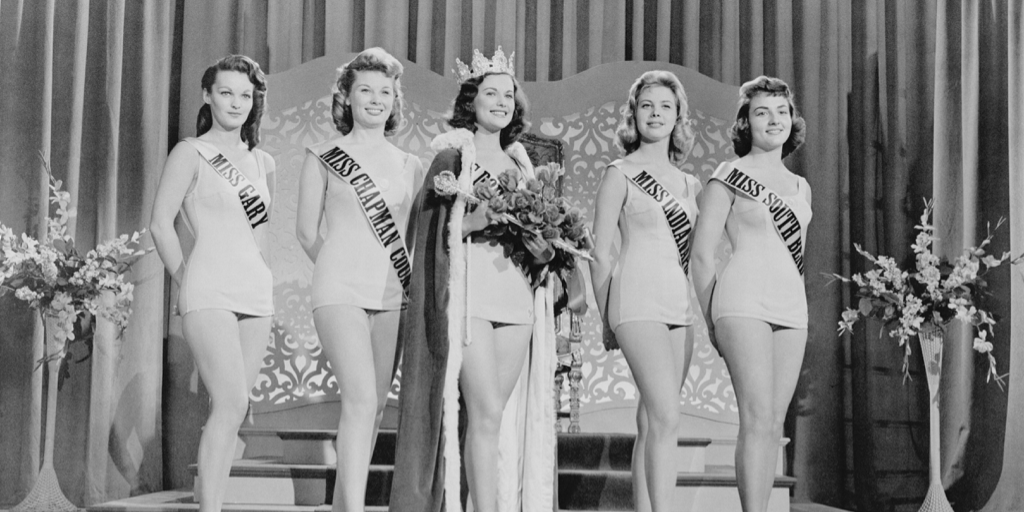Egypt’s most renowned beauty pageant, Miss Egypt, recently announced amendments to its qualification rules: now, veiled, married, and divorced women will be allowed to participate in the competition.
These alterations come as part of a concerted effort from the pageant industry to become more inclusive. Prior to the newly imposed rules, the contest only allowed for unmarried, childless women from ages 20 to 29 to take part. While the age range remains unchanged, the new amendments appear to be a progressive move towards empowering and including more women.
In 2022, Miss Egypt also altered its rules to expand the scope of women representing Egypt by having each governorate select a queen. This allowed girls from across the country’s cities and villages the opportunity to take part, rather than restricting the competition to the capital’s borders.
Moreover, a governorate queen’s position comes with a set of responsibilities — including community service and volunteering — that put the focus on characteristics that go beyond merely the physique.
How it all started
A variation of the modern-day definition of beauty pageants is first mentioned in Ancient Greek mythology in the story of the Judgment of Paris. In the story, a contest was held to choose the fairest between three of the Greek goddesses with the decision being made by a mortal: Paris, son of Priam the King of Troy.
Since then, there have been iterations of the contest across mediaeval Europe, and later across the United States. One of the first beauty pageants to take place within a modern context was the brainchild of American showman, Phineas T. Barnum. In the 1850s, Barnum organised a beauty competition where daguerreotypes — an early form of photography — portraying the contestants would be showcased in his museum, with a vote for the prettiest one to be agreed upon by the public.

The photo competitions grew, and were mimicked across the country, evolving throughout the years, eventually inspiring the Miss America competition in 1921 followed by Miss USA, in 1952.
Miss Egypt, one of the country’s most well-known beauty pageants, was first held in 1927. By 1935, Charlotte Wassef would be the first Miss Egypt to go on to win the Miss Universe pageant. More than a decade later, in 1954, Antigone Costanda would be the next woman to represent Egypt on the international stage after Wassef, by winning the title Miss World.
In 1956, a few decades after the first Miss Egypt, women were being granted a string of rights within the battle for feminism. It was that year that women won the right to run for public office as well as the right to vote. Following these new policies, in 1962, Egypt’s first female minister, Hekmat Abu Zeid, was elected.
By 2016, the Miss Egypt competition was rebranded as the Miss Egypt Bent Masr, in an attempt to remould itself within the context of shifting ideals within the pageantry industry.
Amaal Rezk, President of the Miss Egypt competition, states on the official website that the Miss Egypt Bent Masr comes as an extension of the original competition, adding that the goal is to “reimagine pageantry for the new age and catapult our competitions into the mainstream audience by showing people the confidence and power that pageantry can give young women.”
Controversy Surrounding Beauty Pageants
Over the years, beauty pageants have sparked controversy as many believed that they imposed patriarchal and misogynist values. With contestants being primarily judged for their physical attributes, pageants have come under fire for objectifying women and portraying them as commodities, debates that were taking place against the backdrop of a growing feminist movement seeking to do the opposite.
History has borne witness to many negative reactions elicited by beauty pageants. For the 1970 iteration of the Miss World competition, activists took to the streets in protests as women armed with flour bombs marched onto the competition stage to voice their dissent. Considered as one of the most intense feminist protests, the incident went on to serve as inspiration for the film, ‘Misbehaviour’, released in 2020.
Research studying beauty pageants, either among teenagers or young adults, found that the pageants may induce body dysmorphia — a disorder causing a person to have constant intrusive and detrimental thoughts about their appearance — and a lack of self-esteem. The hyperfocus on external beauty that forms part and parcel of these contests have been argued to promote warped beauty ideals.
The State of Beauty Pageants Today
Since the 1950s and 60s, Egyptian women have not stopped in their fight to claim space within the public sphere, and to be viewed as more than merely mothers, daughters, wives, and in the case of beauty pageants, as commodities.
The participation of women in politics is a beacon of change that galvanises their liberties in other facets of society. They are no longer viewed from a narrow scope which limits them to stereotypes set up by patriarchal society and its values. Through their presence in the public and political sphere, women get a step towards claiming autonomy over themselves within a society.
As society’s view of women slowly continues to shift from superficial to layered, so too do the archaic rules within certain industries, including the pageantry industry.
In the past decade, several amendments have been made in order to spotlight a woman’s intellect alongside her physical attributes — a step towards changing the narrative surrounding women’s bodies and their roles within society.
For Miss Egypt, the selection process for candidates is no longer based solely on appearance, as the participants are chosen after a number of training sessions and interviews placing an emphasis on culture, knowledge, talent and education as much as — if not more than — looks.







Comment (1)
[…] post Are Beauty Pageants in Egypt Changing to Support Women’s Empowerment? first appeared on Egyptian […]